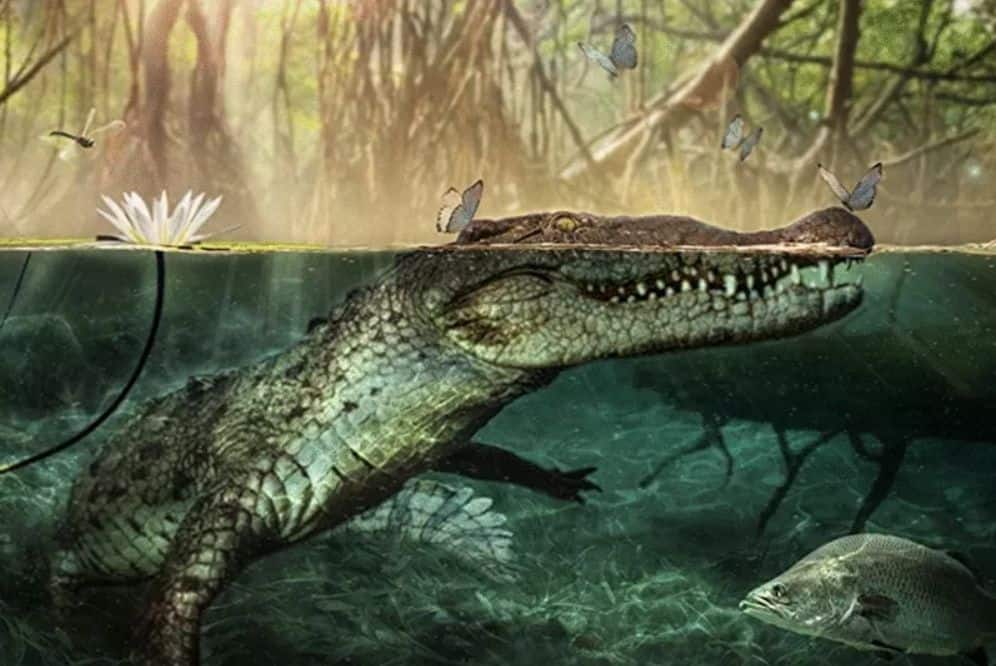Today, crocodiles inhabit several continents, from Africa to Australia, but where did they originate?
A team of Italian researchers examined a crocodile skull of the extinct C. checchiai species, found in 1939 in Libya and kept since then in the Museum of Earth Sciences at Sapienza University in Rome. The remains of this prehistoric reptile date back 7 million years but are in a very good condition.
Analyzing the three-dimensional images of the skull, the scientists found an unusual protuberance on its jaw, something that is not found in any species of African crocodile, but it is found in four species that currently inhabit America. In particular, they are Crocodylus intermedius, C. moreleti, C. acutus and C. rhombifer.
The oldest crocodile fossils in the New World date back about 5 million years, suggesting that African crocodiles may have crossed the Atlantic from Africa to America, where they multiplied and diversified. Migration may have taken place in the Miocene era, between 5 and 11 million years ago.
“It may seem like an incredible feat for a crocodile, but it is possible,” said the study’s main author, Massimo Delfino, from the University of Torino and the Catalan Institute of Paleontology Miquel Crusafont, who also recalled that crocodiles are capable of traversing a distance of more than 500 kilometres by the sea in just several weeks.
A total of 14 crocodile species inhabit Africa, America, Asia and Australia. These reptiles appeared more than 83 million years ago and are the closest living relatives of birds.
